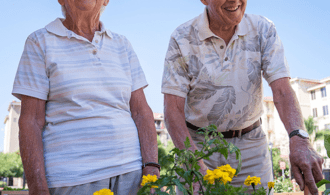Coping with Grief and Loss for Seniors
Introduction:
Grief and loss are inevitable aspects of life, but they can be particularly challenging for seniors as they face the loss of loved ones, declining health, and changes in their social networks. Coping with grief in later life requires understanding, compassion, and access to appropriate support systems. In this article, we’ll explore effective strategies to help seniors navigate grief and loss, finding comfort and healing in their unique journey.
Understanding Grief and Loss in Seniors:
Grief is a natural response to loss, whether it’s the death of a loved one, the loss of independence due to illness or disability, or the end of significant relationships. Seniors may also experience anticipatory grief as they confront their own mortality and the impending loss of loved ones. Understanding the grieving process and acknowledging the unique challenges seniors face is essential for providing meaningful support.
Effective Strategies for Coping with Grief and Loss:
1. Encourage Emotional Expression:
Create a safe and supportive environment for seniors to express their feelings of grief and loss. Encourage them to talk openly about their emotions, share memories of their loved ones, and engage in activities that provide comfort and solace.
2. Provide Bereavement Support:
Connect seniors with bereavement support groups or counseling services tailored to their needs. These resources offer opportunities for sharing experiences, receiving validation, and learning coping strategies from others who understand their grief journey.
3. Promote Self-Care:
Encourage seniors to prioritize self-care activities that nourish their body, mind, and spirit. Engaging in hobbies, practicing relaxation techniques, and maintaining a healthy lifestyle can help reduce stress and promote emotional well-being during times of grief.
4. Create Rituals and Memorials:
Help seniors create meaningful rituals or memorials to honor their loved ones and commemorate special memories. This could involve planting a memorial garden, creating a memory book, or participating in commemorative ceremonies or events.
5. Offer Practical Support:
Provide practical support to alleviate the burden of daily tasks and responsibilities, such as meal preparation, household chores, or transportation. Offering a helping hand allows seniors to focus on their grieving process without the added stress of managing day-to-day tasks.
Coping with grief and loss is a deeply personal journey, but seniors don’t have to navigate it alone. By implementing these effective strategies and accessing appropriate support systems, seniors can find comfort, healing, and meaning in the midst of their grief.
Contact us here with questions about Generations’ senior living options.
Book a tour at a Generations Community near you.

While caregiving can be a very important act of love and service, it is common for caregivers to…


